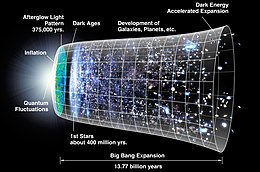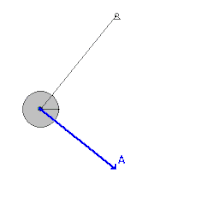
Back Wetenskap Afrikaans Wissenschaft ALS ሳይንስ Amharic Ciencia AN Witancræft ANG विज्ञान ANP علم Arabic صيونص ARY علم ARZ বিজ্ঞান Assamese

Scientia (-ae, f.), sive plenius scientia rationalis, est inceptum systematicum, quod cognitionem aedificat et ordinat, explanationes quae temptari possunt et praedictiones de universo offerens.[1][2]



Primus progressus in historia scientiae Aegypto antiquae Mesopotamiaeque annos ab 3000 ad 1200 a.C.n. attribui potest,[3][4] quarum inventiones traditionesque mathematicae, astronomiae, et medicinae Graecam antiquitatis classicae philosophiam naturalem intraverunt et formaverunt, unde homines periti eventus in mundo corporeo in causis naturalibus fundatos explicare rite conabantur.[3][4] Post Imperium Romanum Occidentalium casum, scientia Graecarum orbis terrarum notionum in Europa Occidentali primis medii aevi saeculis (ab anno 400 ad annum 1000) corrumpebatur,[5] sed in mundo Islamico aetate aurea Islamica conservabatur.[6]
- ↑ Wilson, E. O. (1999). "The natural sciences". Consilience: The Unity of Knowledge (Reprint ed.). Novi Eboraci: Vintage. pp. 49–71. ISBN 978-0-679-76867-8
- ↑ Heilbron, J. L. (2003). "Preface". The Oxford Companion to the History of Modern Science. Novi Eboraci: Oxford University Press. pp. vii–x. ISBN 978-0-19-511229-0.
- ↑ 3.0 3.1 "The historian . . . requires a very broad definition of "science"—one that . . . will help us to understand the modern scientific enterprise. We need to be broad and inclusive, rather than narrow and exclusive . . . and we should expect that the farther back we go [in time] the broader we will need to be." p. 3—Lindberg, David C. (2007). "Science before the Greeks". The beginnings of Western science: the European Scientific tradition in philosophical, religious, and institutional context (secunda ed.). Sicagi: University of Chicago Press. pp. 1–20. ISBN 978-0-226-48205-7.
- ↑ 4.0 4.1 Grant, Edward (2007). "Ancient Egypt to Plato". A History of Natural Philosophy: From the Ancient World to the Nineteenth Century (Prima ed.). Novi Eboraci: Cambridge University Press. pp. 1–26. ISBN 978-0-521-68957-1.
- ↑ Lindberg, David C. (2007). "The revival of learning in the West". The beginnings of Western science: the European Scientific tradition in philosophical, religious, and institutional context (secunda ed.). Sicagi: University of Chicago Press. pp. 193–224. ISBN 978-0-226-48205-7.
- ↑ Lindberg, David C. (2007). "Islamic science". The beginnings of Western science: the European Scientific tradition in philosophical, religious, and institutional context (secunda ed.). Sicagi: University of Chicago Press. pp. 163–92. ISBN 978-0-226-48205-7.